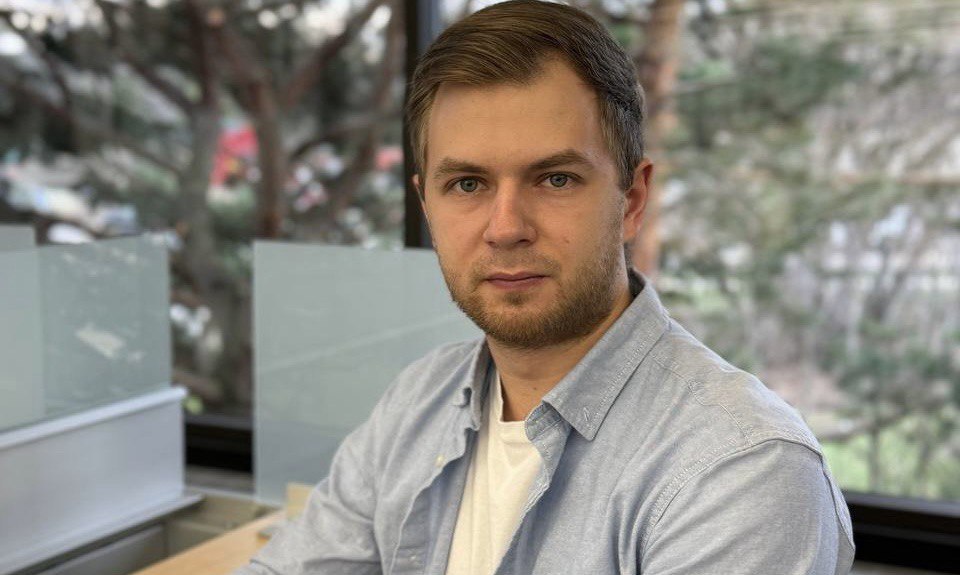In response to the rapid advancement of technology and the growing need for continuous skill development, there has been a noticeable rise in demand for short courses and professional certifications. For instance, in 2025, the U.S. is seeing an increasing number of students choosing certification programs in tech fields such as data analytics, cybersecurity, and cloud computing.
So, what’s the most effective learning path in today’s world for those aiming to grow and succeed in the IT industry? We explore this question with expert Sergei Berezin.
Sergei Berezin is a software engineer, winner of the “Top 40 IT Specialists of Russia” award, and the creator of an AI-based system for the restaurant industry.
Sergei is an accomplished software engineer from Russia, with a strong background in developing tech solutions for the hospitality industry. A graduate of South Ural State University in Chelyabinsk, he gained early recognition for creating an intelligent CRM system designed to streamline and automate core operations in restaurant management.
In June 2024, Sergei presented this project at the All-Russian Scientific and Practical Conference “Science of the 21st Century,” where it earned him a special award and sparked interest among both researchers and industry professionals. His innovative approach later earned him a spot in the prestigious Top 40 IT Specialists of Russia ranking.
Beyond that, Sergei also contributed his expertise as a jury member at the hackathon “Best Innovations: In Practice,” which challenged participants to create cutting-edge business applications under the theme “Top IT Solutions for Business.”
Sergei, how did your journey into IT begin? Was it through university, courses, or self-learning?
My journey into IT actually started before university. I was always curious about how programs and websites worked – what was going on “under the hood.” At first, I watched simple YouTube tutorials, browsed forums, read articles, and tried writing small scripts in Python. A lot of it was self-taught at the beginning – I was just genuinely interested.
Later, I enrolled at South Ural State University, and that gave me a more structured approach. I started thinking more systematically and gained a deeper understanding of software architecture.
In fact, everything progressed in parallel: I was studying at university, learning on my own, and constantly trying things out in real projects. I believe this combination of different learning formats was key to my development.
What did university give you beyond theory? Things like teamwork, presenting at conferences, or project communication? Do you think it’s still worth going to university in 2025 if someone wants to work in IT?
University is about more than just theory. One of the most valuable aspects for me was the chance to explore different formats. For example, taking part in research conferences like “Science of the 21st Century” helped me not only write code, but also present my ideas to a wider audience, justify my thinking, and get feedback.
And just as importantly, university provides a social environment. You learn to work in teams, collaborate, find solutions together. Those soft skills translate directly into the real-world dynamics of working on any project – especially larger ones.
So is university worth it? That depends on the person. If you’re self-disciplined and able to build your own learning path, self-education can work. But university gives you structure, community, and a gradual increase in challenge – which is incredibly helpful, especially in the beginning.
From your experience, where do strong IT professionals typically “emerge” – in classrooms, forums, or startups? What’s your main advice for young people who want to build a career in this field?
Great IT specialists tend to grow where there’s challenge and constant practice. It could be a classroom where you get obsessed with a project, a forum where you spend hours debating and writing code, or a startup where you’re forced to build fast and think beyond just programming – you have to think about the product. It all depends on the environment and how engaged you are.
My main advice? Don’t be afraid to start – to try, to fail, to share your projects, even if you feel they’re “not ready.” Growth in IT is a marathon, not a sprint. It’s better to take consistent small steps than to wait forever for the “perfect” moment or the “perfect” course. And one more thing – don’t compare yourself to others. Compare yourself to who you were yesterday. Progress – that’s the only metric that really matters.





























